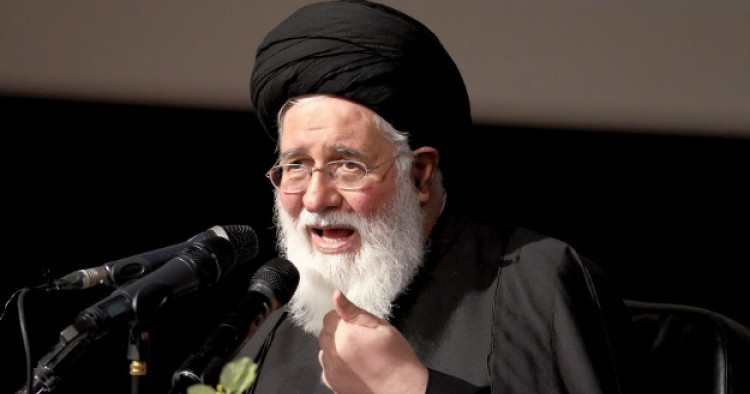On December 18, a senior Iranian cleric claimed that Iran’s influence was expanding across the Middle East and called on the country’s armed forces to “nullify” America’s role and power in the region.
Speaking to Iranian military personnel in Khorasan-e Razavi Province, Ayatollah Ahmad Alamolhoda, a top aide to Supreme Leader Ali Khamenei, said the United States mistakenly believed that Iran’s “political influence” after the 1979 Islamic revolution “would not translate into military dominance” in the region. “Iran’s power must neutralize the power of America and the West in the region,” he emphasized.
Alamholhoda further noted that Iran’s influence in the region was no longer confined to its proxy Hezbollah in Lebanon, and that regional “resistance forces” were now totally reliant on the support of Iranian military. “The expansion of Iran’s power has reached a level that America and its associated powers today are unable to resolve the issues,” he bragged. “Besides, [Iran’s] power is deepening [in the region] every day.”
Comment:
Alamolhoda’s remarks, which reflect the views of Khamenei, indicate that the Islamic Republic, almost 38 years after Grand Ayatollah Ruhollah Khomeini’s revolution, is still determined to export its revolutionary and hegemonic agenda abroad. Iranian regime’s support for “resistance forces” – a term used by Iranian leaders for regional terrorist groups and militant organizations – has been a primary source of instability, sectarianism, bloodshed and violence from Afghanistan to Syria, Iraq and beyond. The cleric’s comments also demonstrate that the Iranian regime sees “political influence” and soft power tools as an essential precursor to expanding Iran’s military power and influence across the region.
The Middle East Institute (MEI) is an independent, non-partisan, non-for-profit, educational organization. It does not engage in advocacy and its scholars’ opinions are their own. MEI welcomes financial donations, but retains sole editorial control over its work and its publications reflect only the authors’ views. For a listing of MEI donors, please click here.













